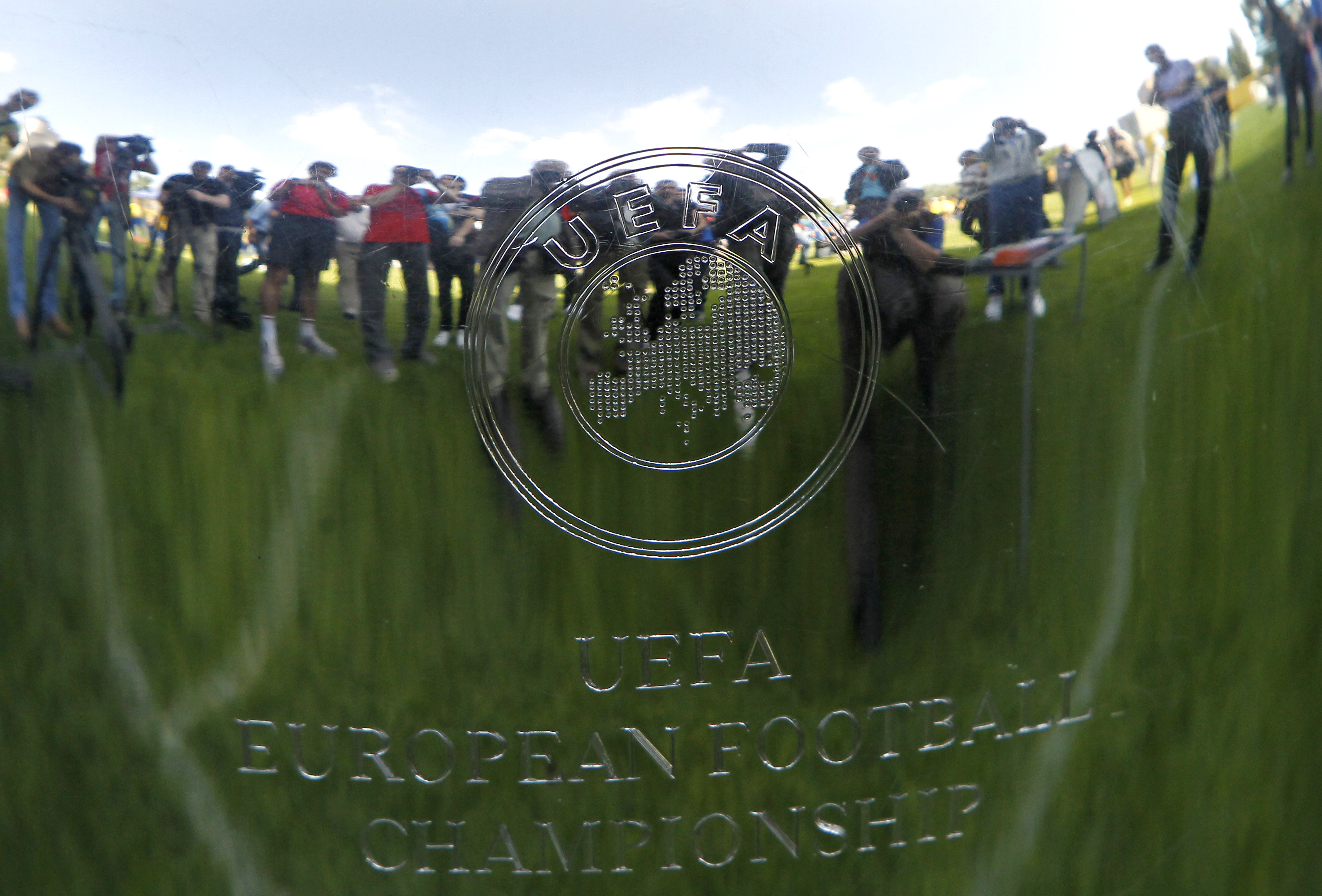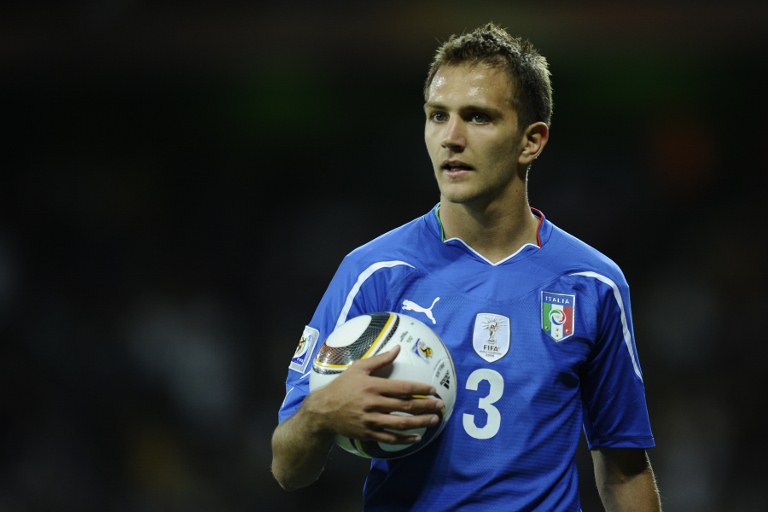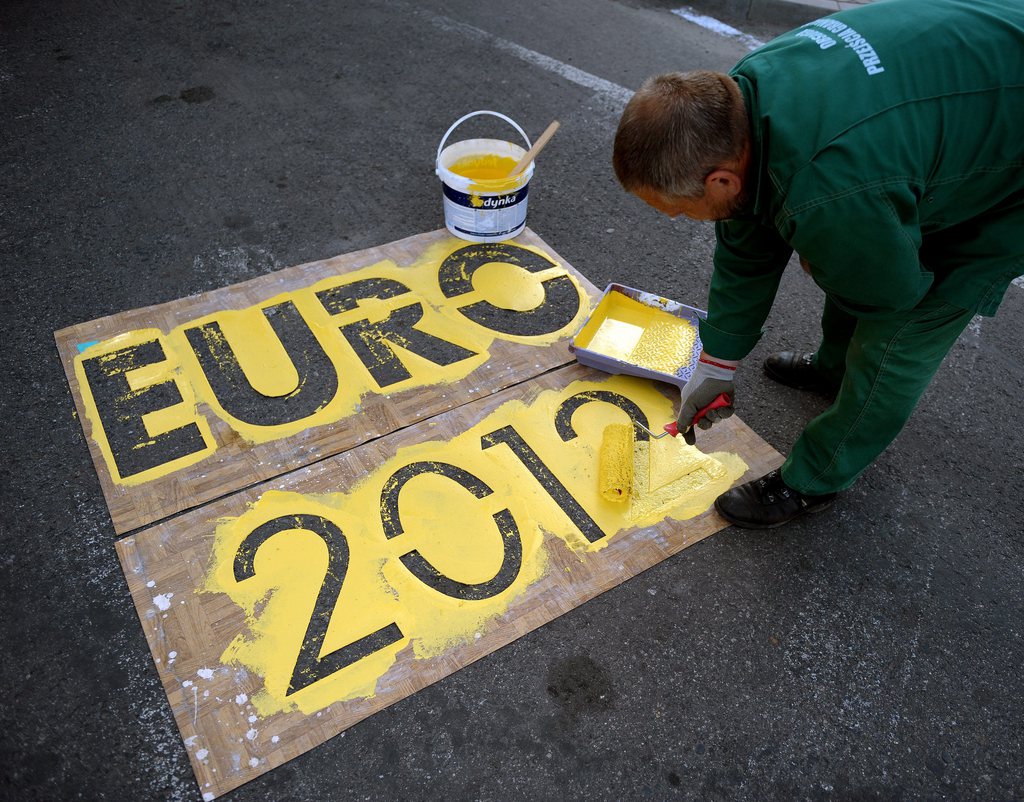Ukraine’s political scandal overshadows Euro 2012

Ahead of the European football championships, Switzerland has joined other European nations in urging further reforms of the Ukrainian judicial system. The detention of opposition leader Yulia Tymoshenko has cast gloom over Euro 2012.
No members of the Swiss cabinet will attend matches in Ukraine, but Switzerland is not officially joining the boycott by some European governments of the matches to be played in the country that is co-hosting the tournament with Poland. The boycott is in protest of the treatment of Ukraine’s imprisoned former Prime Minister.
Although Switzerland failed to qualify for the tournament, Swiss Defence and Sports Minister Ueli Maurer will attend the opening match between Greece and Poland in Warsaw on Friday together with Polish Defence Minister Tomasz Siemoniak.
“Visits to other Euro 2012 games in Poland or Ukraine were never foreseen,” sports office spokeswoman Sonja Margelist told swissinfo.ch.
Tymoshenko, 51, was jailed for seven years last October on abuse of power charges that she claimed were a part of a vendetta by Ukrainian President Viktor Yanukovych against her and her former government team. Her health has deteriorated since her imprisonment and she claims she has been beaten.
Switzerland has offered to mediate between Ukraine and the European Union over the case and said it would welcome her for medical treatment.
European pressure
The EU has voiced concern over the fate of Tymoshenko, but has failed to decide on a joint boycott, while the European Parliament passed a resolution at the end of May calling for the “unconditional immediate release of all prisoners sentenced on politically motivated grounds, including leaders of the opposition”.
The European Commission says political trials are a “systemic” problem in Ukraine and require vast reform of the judicial system, and former government members are also at risk.
In March, the EU finished technical work on an association agreement for greater political and economic integration with Ukraine, a move meant to bring Kiev closer to adopting “European” values such as the rule of law.
But the EU says Ukraine needs to “live in the spirit” of this political association and address issues like politically motivated trials, independence of the judiciary and selective use of law.
Yanukovych has acknowledged that Tymoshenko’s case could hinder Ukraine’s integration into the EU. He says foreign lawyers are carrying out a legal audit of the case and are due to present their findings soon.
Reforms “on the move”
Switzerland opened a Swiss Agency for Development and Cooperation (SDC) office in Kiev in 1999. The current 2011-2014 strategy for Ukraine (SFr16.9 million budget) focuses on local governance and public services, the health of women and children, and reforms to parts of the judicial system.
The SDC says European norms such as the principle of judicial independence and restorative justice have been taken up in the concept of the Ukrainian judiciary. The 14-year-old project is being gradually scaled down and will be handed over this year to the EU and United States.
The Swiss government agency also says progress has been made in the field of juvenile crime prevention, detention conditions for vulnerable detainees such as women with children and juvenile delinquents, and mediation has been acknowledged as a new element of criminal justice procedures.
“In 2011 the level of juvenile crime decreased by up to 8-9 per cent in certain target regions and by 6.1 per cent at the national level as a result,” said Swiss foreign ministry spokeswoman Carole Wälti.
Improvements are limited in scope and geographical coverage, but are an important contribution to the overall reform process which is slow but “on the move”, she added.
The European Commission describes Ukraine’s new Criminal Procedural Code, adopted on May 14, as a “step forward” but says reforms must also be made to the Penal Code.
Wälti agreed: “The new Criminal Procedural Code brings about some important improvements for detained persons. However, it will not change the situation for people who have been convicted. So as to improve the situation for convicted persons, the Criminal Code also needs to be adapted. Last autumn, there were attempts to do so in the Ukrainian Parliament, yet the reform bill was rejected.”
Improved health
Tymoshenko ended a 20-day hunger strike earlier last month and was subsequently moved from prison into a hospital to be treated for chronic back pain.
Earlier this week Karl Max Einhäupl, the head of Berlin’s Charite hospital, reported that her condition had improved somewhat but her treatment remained difficult.
Ukrainian authorities have denied Tymoshenko has been ill-treated, refused to release her and described the boycott as a “Cold War method”.
They have meanwhile kept up the pressure on her, adding accusations of tax evasion, and say they are looking into her possible involvement in a 16-year-old contract killing.
Show must go on
Eugenia Tymoshenko, daughter of the jailed Ukrainian opposition leader, said she understood the political boycott.
“But I think sports events should go on… My mother, when she was in government, fought for the right to host this championship in Ukraine,” she told the BBC.
Ukrainian opposition leaders also urged European leaders to come to the championship.
“The best scenario would be if the European leaders attended the championship, but did not meet President Yanukovych. It’s supposed to be a visit to Ukrainians, not to Yanukovych,” said the leader of the opposition Front for Change party, Arseniy Yatsenyuk.
Swiss assistance to Ukraine focuses on: technical and financial assistance for projects to strengthen local governance and public services; reproductive health; sustainable economic development and greater energy efficiency; reforms of the justice system.
In 1997, Switzerland and Ukraine signed a framework agreement on technical, financial and humanitarian cooperation which led to the opening of a cooperation office in Kiev in 1999. The budget for 2011 activities in Ukraine is SFr16.9 million ($17.5 million).
Over the past ten years, both exports and imports between Switzerland and Ukraine have quadrupled. In 2011, Switzerland exported goods worth SFr612 million and imported items worth SFr62 million. But they represent only 0.3 and 0.03 per cent of total exports and imports respectively.
Ukraine is the second-biggest export market among the former Soviet states, especially pharmaceutical products, watches and chemicals products.
Source: Seco and SDC

In compliance with the JTI standards
More: SWI swissinfo.ch certified by the Journalism Trust Initiative



You can find an overview of ongoing debates with our journalists here . Please join us!
If you want to start a conversation about a topic raised in this article or want to report factual errors, email us at english@swissinfo.ch.